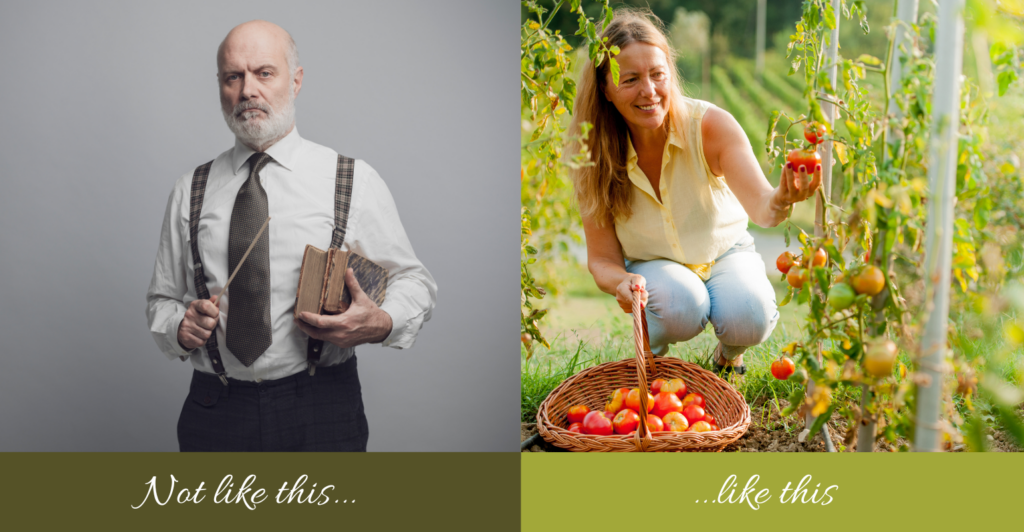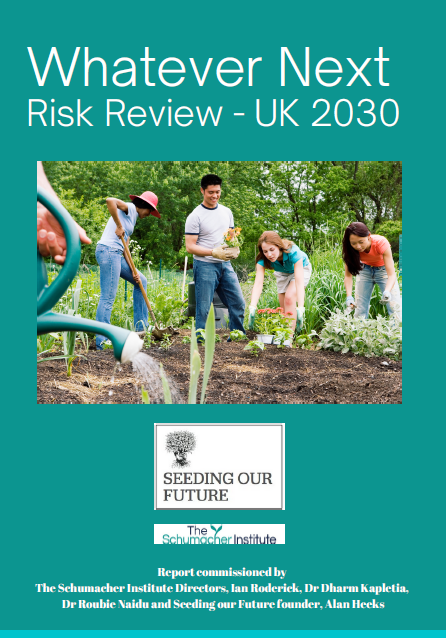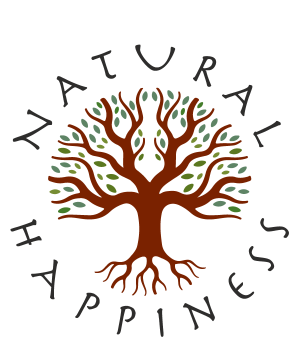Exploring the Future, some more…
Why organic navigation is better than analytical prescription
In recent years, I’ve spent quite a lot of my time exploring the future outlook: recently, I feel I’m getting some valuable insights, but I’ve also been pondering why I spend so much time on this. It feels like this is part of my current purpose in life: I have some time, skills and resources to make this exploration, at a time of massive change and uncertainty, when it seems that most people (and governments) can’t or won’t consider the future and how it could guide us now. So this blog is a progress report, and an invitation to anyone reading it to contact me to share the process.

We’re in a culture which craves control, scientific analysis, specific prescriptions. In exploring the future, all this has limited value, whereas the co-creative approaches from organic gardening, which I explore in my new book, Natural Happiness, give us flexible processes suited to the need. Here are a few of those processes which are relevant.

- Emotional adaptation: one of the many insights I’ve gained from Jem Bendell’s Deep Adaptation approach is his view that the emotional impacts of the climate crisis are so big that we have to work through them before we can think coherently about the future. One of the best methods for this, which Jem endorses, is The Work that Reconnects.
- A Thread of Hope: in human motivation, hope is crucial, but it’s hard to find with the future we all face. We need to adapt to an outlook which almost certainly brings a lot more turbulence and distress. A book which has helped me with its glimmer of long-term hope beyond the chaos is John Michael Greer’s The Ecotechnic Future: see my blog here.
- Pick a component: most of us are dependent on complex global systems for essentials like food, communications, banking. These systems are under great stress, and some degree of breakdown is likely in the 2020s. I share Greer’s view that Utopian ideas of creating whole new systems are probably unrealistic. It’s wiser to pick on a component, a subsystem, where you and others could create a local alternative: robust, low-tech, not dependent on the global systems. Role models already exist, for example in community food or energy, but they need to be made more reproducible by regular folk.
- Expect the unexpected: you may know the idea of Black Swan events: catalytic happenings which few people saw coming, such as covid. My Future Risks Review at least attempts to bring some of the possible surprises of the coming decade into our awareness, such as Internet and mobile phone network failures. Even this list of eight major risks looks daunting, but maybe within your community there may be enough aware people to form subgroups to explore several of them.
- Stick together: one insight this Risks Review offers is that we can’t prepare for or control many of the issues we’re all facing: strengthening connections and capacity in your local community is a basic essential in raising general resilience for whatever’s ahead. For some useful resources, click here.
- Levelling down: It’s clear that in a world with population still rising, and shrinking supplies of essentials like food and gas, our real standard of living will have to come down as we pay more for basics. And as interruptions increase to ‘normal’ items like electricity, food, public services, I keep thinking how this is already normal in large parts of Africa and Asia: people learn to live with it, and we in the West will have to do so too. So let’s level down our expectations, and start learning from places already living our future!
- What will the money do? One of the useful insights from Jem Bendell’s new book, Breaking Together, is the stupendous power over all of us which is wielded by a self-serving combination of wealthy individuals, big businesses, and the national governments they largely control. This elite has shown enormous capability in riding out major crises, and using them to enlarge their power: for example, the 2008 banking meltdown, and the covid pandemic.
One reason I question Jem Bendell’s belief that societal collapse is inevitable within the decade is that I don’t believe collapse suits the elite, and they’ll find ways to fudge on through. I’d love to know how they view the future outlook, and what their game plan is. This will have a massive bearing on all of our futures, and I haven’t yet found a good exploration of this question. If you know of one, please contact me.
Meanwhile, I hope you have the courage to stay aware, and can find some kindred spirits to explore your future co-creatively.
